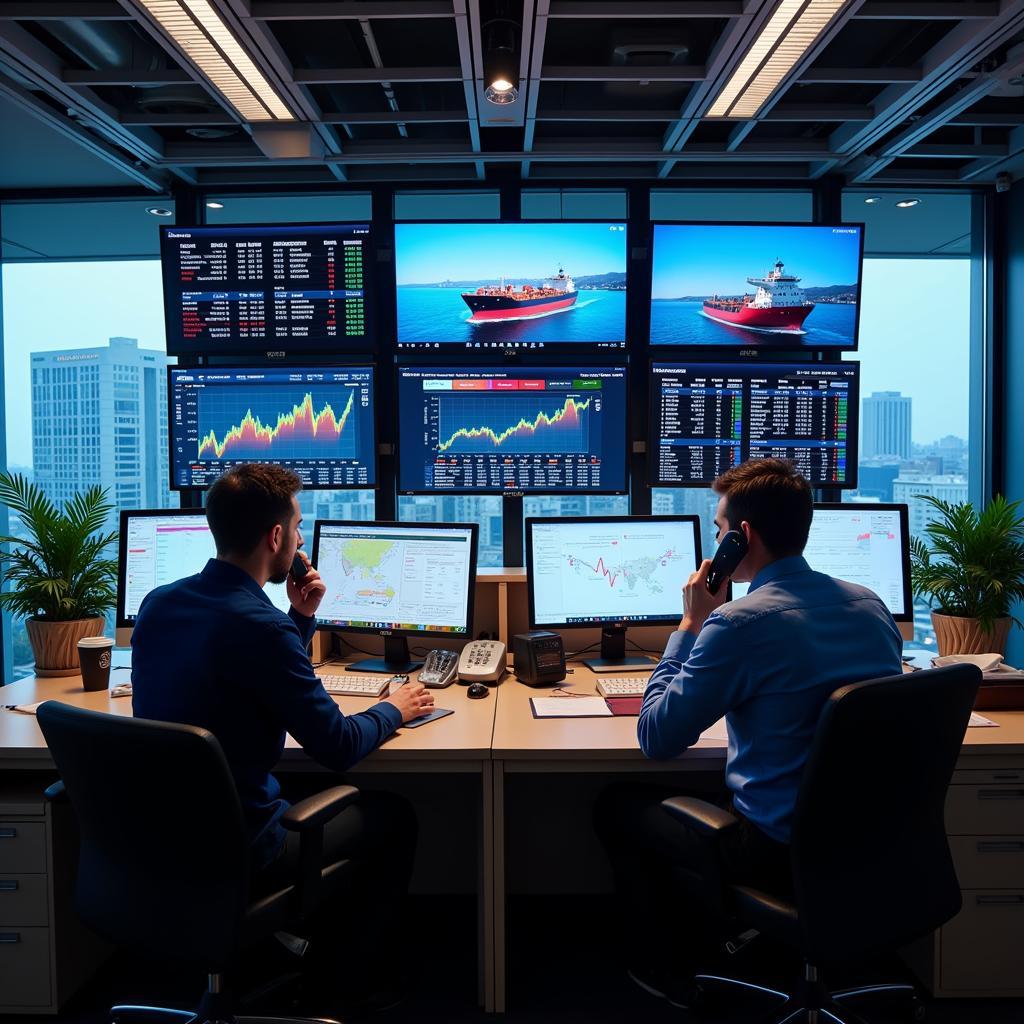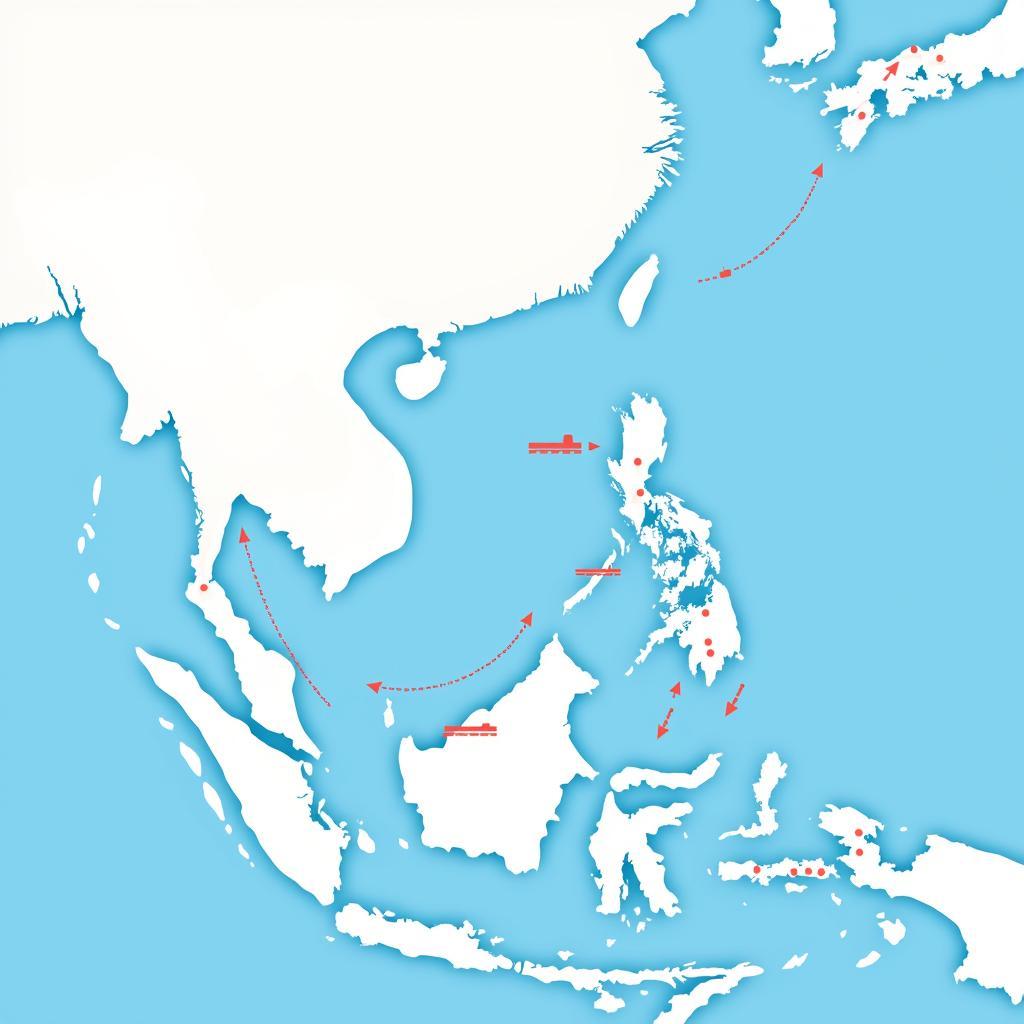The Asean tanker desk plays a crucial role in the intricate world of maritime trade within the Southeast Asian region. Acting as a central hub, it connects charterers, shipbrokers, and shipowners to facilitate the smooth and efficient transportation of oil and gas products. This article delves deep into the world of Asean tanker desks, exploring their functions, significance, and the factors that influence their operations.
Understanding the Asean Tanker Desk
 Asean Tanker Desk Operations
Asean Tanker Desk Operations
An Asean tanker desk is essentially a specialized team or department within a shipping company or brokerage firm that focuses specifically on the chartering and operation of tankers within the ASEAN region. These desks act as intermediaries, connecting those who need to transport oil and gas (charterers) with those who own and operate the vessels (shipowners). Their primary goal is to secure the most favorable terms for their clients, ensuring that cargoes are transported safely, efficiently, and cost-effectively.
The Importance of an Asean Tanker Desk
The significance of Asean tanker desks stems from the region’s heavy reliance on seaborne transportation of energy products. Southeast Asia, with its booming economies and growing populations, has witnessed a surge in demand for oil and gas. This demand is met through a complex network of shipping routes, with tankers playing a pivotal role in ensuring a steady supply of these essential commodities.
 Asean Tanker Routes Network
Asean Tanker Routes Network
Factors Influencing Asean Tanker Desk Operations
Several factors can significantly impact the operations of an Asean tanker desk. Understanding these factors is crucial for both those working within the industry and those seeking their services:
- Global Oil Prices: Fluctuations in global oil prices directly influence tanker rates. Higher oil prices often lead to increased demand for tankers, pushing up freight rates.
- Geopolitical Climate: Political stability and security in the region are paramount for the smooth operation of tanker desks. Any disruptions to shipping lanes or ports due to geopolitical tensions can severely impact operations.
- Seasonal Variations: The monsoon season, with its unpredictable weather patterns, can pose challenges to tanker operations, potentially leading to delays and increased costs.
- Environmental Regulations: Increasingly stringent environmental regulations, particularly those related to emissions control, are compelling shipowners to adopt cleaner technologies, impacting vessel availability and operating costs.
The Future of Asean Tanker Desks
 Digital Transformation Asean Tanker Desk
Digital Transformation Asean Tanker Desk
The future of Asean tanker desks is poised for transformation, driven by technological advancements and evolving industry dynamics. The adoption of digital solutions, such as online platforms for chartering and real-time vessel tracking, is streamlining operations and enhancing efficiency. Furthermore, the industry’s focus on sustainability and decarbonization is driving the development of eco-friendly tankers, shaping the future fleet composition and operational practices of Asean tanker desks.
Conclusion
Asean tanker desks are indispensable players in facilitating the smooth flow of energy products within Southeast Asia’s dynamic maritime landscape. Their expertise in navigating the complexities of the tanker market ensures that the region’s growing energy demands are met efficiently and reliably. As the industry evolves, embracing technological advancements and sustainability initiatives will be crucial for Asean tanker desks to maintain their competitive edge and thrive in the future.
